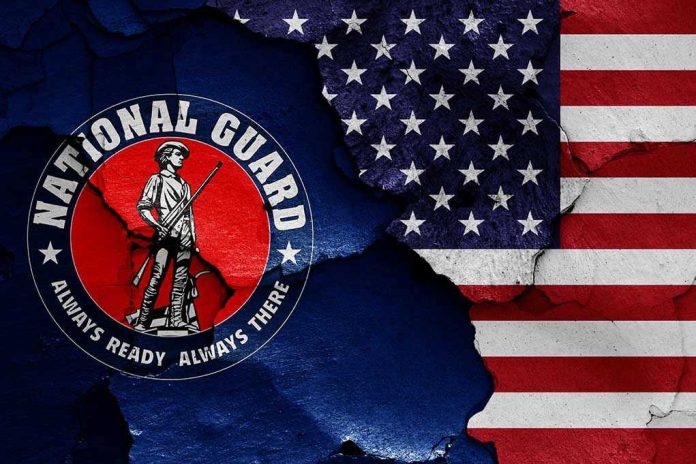
President Trump’s unprecedented federal takeover of Washington, D.C.’s police has triggered a dramatic drop in crime, but fierce debate erupts over who deserves credit and what this means for local control.
Story Snapshot
- Federalization of D.C. police under President Trump coincided with double-digit drops in violent crime and property offenses within days.
- The move marks an historic shift in law enforcement power, igniting tensions between federal and local officials.
- Preliminary data shows major crime categories down, but experts caution against drawing sweeping conclusions just yet.
- Debate intensifies over the future of local autonomy, police oversight, and the long-term impact of federal intervention.
Federal Takeover Sparks Rapid Crime Decline in D.C.
On August 11, 2025, President Donald Trump federalized the Metropolitan Police Department and deployed National Guard troops to Washington, D.C., a historic move justified by persistently high violent crime rates and what Trump called “out-of-control” lawlessness. In the eleven days following this action, official MPD reports revealed double-digit percentage reductions in carjackings, motor vehicle thefts, robberies, homicides, and broader violent crime when compared to the previous period. The data, reviewed by multiple independent sources, indicated an immediate and significant improvement in public safety across the city.
Trump’s administration publicly credited the swift crackdown and federal oversight for the positive results, hosting a recognition event for law enforcement and pledging to make the city “totally safe.” However, city officials, led by Mayor Muriel Bowser, challenged the intervention’s necessity and decried the loss of local control. Bowser and others questioned the accuracy of crime reporting, accusing federal authorities of politicizing the numbers and undermining trust in local governance. For many D.C. residents and businesses, the presence of National Guard troops and a visible federal law enforcement footprint brought both relief and new anxieties about the future of their city’s autonomy.
Political and Legal Tensions Over Public Safety and Local Control
The federalization of D.C. law enforcement is unprecedented in modern history, with prior federal involvement typically limited to temporary deployments during emergencies or protests. This full-scale takeover has raised urgent questions about the boundaries of federal power and the rights of local governments to control their own police departments. Trump’s supporters argue that decisive action was overdue, citing years of rising crime and alleged mismanagement by local officials. Critics, meanwhile, warn that the intervention sets a dangerous precedent, eroding local autonomy and threatening the constitutional balance of powers that protects states’ and municipalities’ rights.
Political rivalry between the White House and D.C. city hall has only intensified, with Trump repeatedly accusing local leaders of manipulating crime statistics and failing to keep residents safe. These public disputes have fueled partisan debate nationwide over the proper role of federal intervention in urban policing—especially in cities where progressive policies have drawn criticism for perceived leniency or ineffective governance. The tension extends to law enforcement itself, as MPD officers now answer to federal authorities, shifting longstanding power dynamics and accountability structures.
Expert Analysis and Unanswered Questions About Sustained Impact
Independent experts and crime analysts confirm that D.C.’s recent crime drop is consistent with national trends, but caution that the data is preliminary and may be subject to revision. The Council on Criminal Justice notes that, while violent crime remains higher in D.C. than in most major cities, short-term reductions should be interpreted carefully. Law enforcement morale has reportedly increased following presidential recognition, yet community trust in police oversight is now under a new set of pressures. Some observers warn of the risks in politicizing crime statistics and stress the need for transparent, long-term data to assess whether federal intervention can produce lasting improvements without sacrificing local rights or due process.
Broader impacts are emerging in economic and social spheres, as businesses and residents weigh the promise of increased safety against concerns about governance and the future of city autonomy. National advocacy groups and city councils across the country are closely watching developments in Washington, D.C., aware that this intervention could serve as a precedent for federal action elsewhere. As debates continue, the city remains under federal control, with ongoing monitoring of crime trends and no clear timeline for returning authority to local officials.
Sources:
Crime in Washington, DC: What You Need to Know – Council on Criminal Justice
Metropolitan Police Department Daily Crime Data
Fact: Yes, D.C. Crime Is Out of Control – White House
Crime Incidents in 2025 – D.C. Open Data



